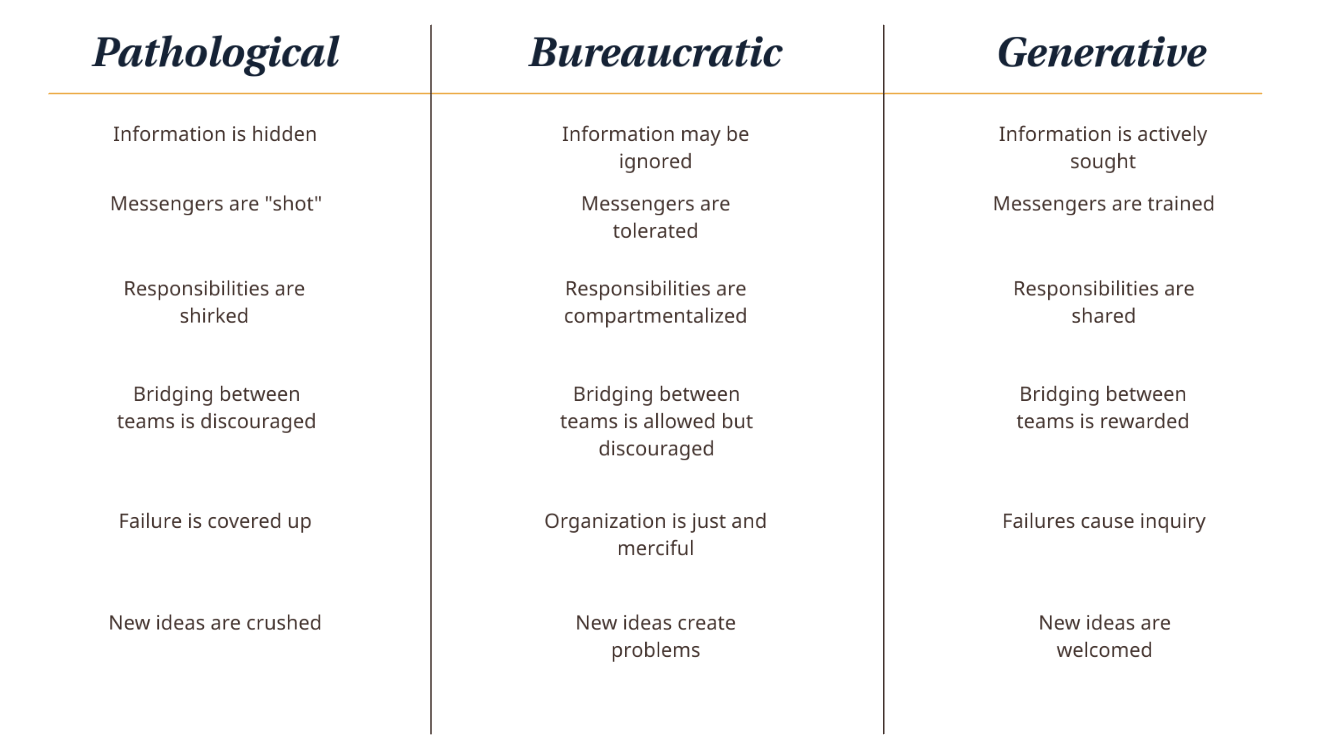Uno dei principi del sistema di gestione chiamato DevOps, di cui ho già parlato più volte, è la creazione di una cultura aziendale sicura in cui sia possibile apprendere e sperimentare. Si tratta di parte di quella che Gene Kim chiama “terza via”, ovvero quella che governa l’apprendimento continuo.
Nella pillola di oggi quindi vediamo come vengono caratterizzate le aziende secondo questo principio, che le suddivide in:
- Organizzazioni patologiche, caratterizzate da paura e minacce: in questo tipo di organizzazioni, le persone accumulano informazioni e le trattengono per motivi politici o per mettersi in buona luce, l’informazione è fonte di potere e il fallimento viene spesso nascosto;
- Organizzazioni burocratiche, caratterizzate da regole e processi che sono spesso pensati per aiutare i singoli dipartimenti nella salvaguardia del loro territorio: in questo tipo di organizzazioni, il fallimento viene processato attraverso un sistema di giudizio che risulta in una punizione o nel grazioso perdono della dirigenza, ma non viene sfruttato come occasione di apprendimento;
- Organizzazioni cosiddette generative, caratterizzate da una ricerca attiva delle informazioni e dalla condivisione spontanea, mirata a far sì che l’organizzazione possa raggiungere più facilmente i propri obiettivi: in questo tipo di organizzazione, le responsabilità vengono condivise lungo tutto il flusso di valore e il fallimento genera momenti di riflessione e analisi.
Nel suo manuale, Gene Kim propone uno specchietto di “sintomi” per riconoscere l’organizzazione in cui ci si trova. Personalmente ho lavorato in organizzazioni di tutte e tre le tipologie. Voi in quale tipologia vi ritrovate?








No Comments